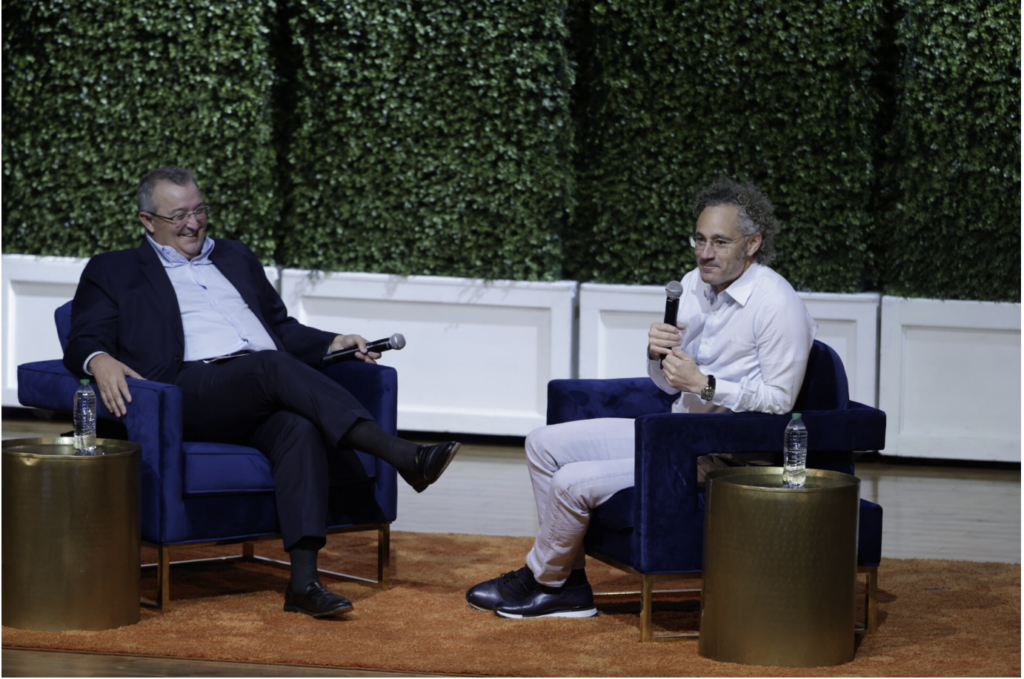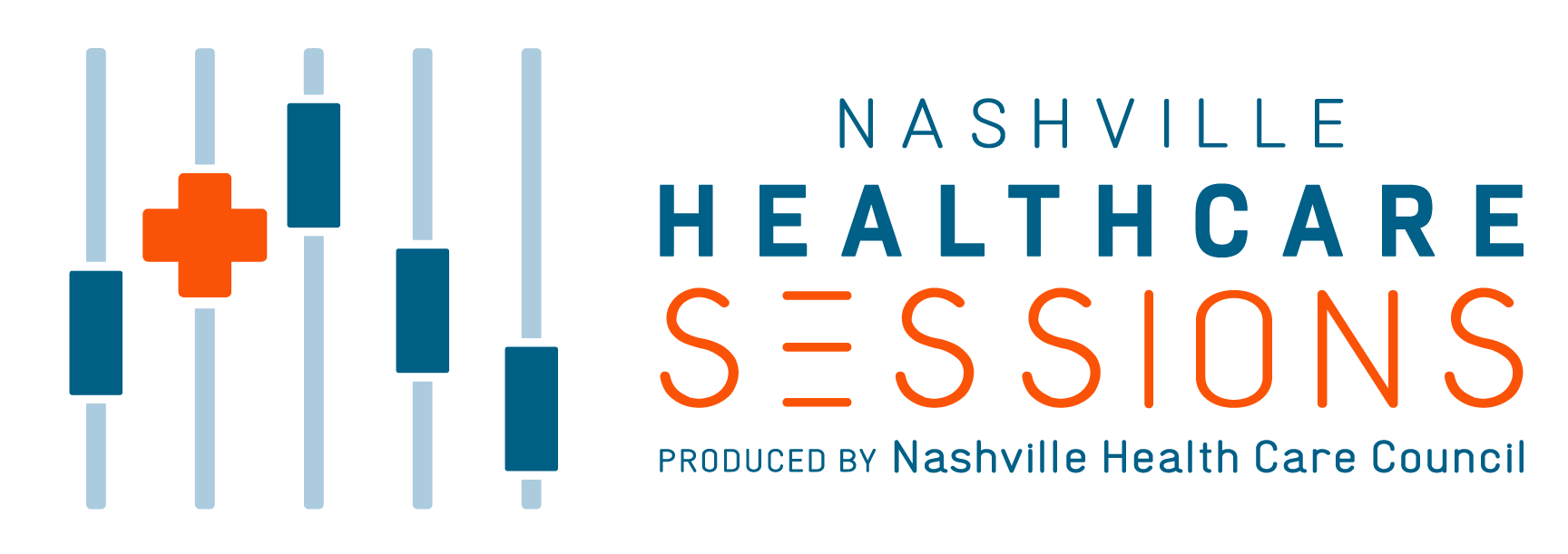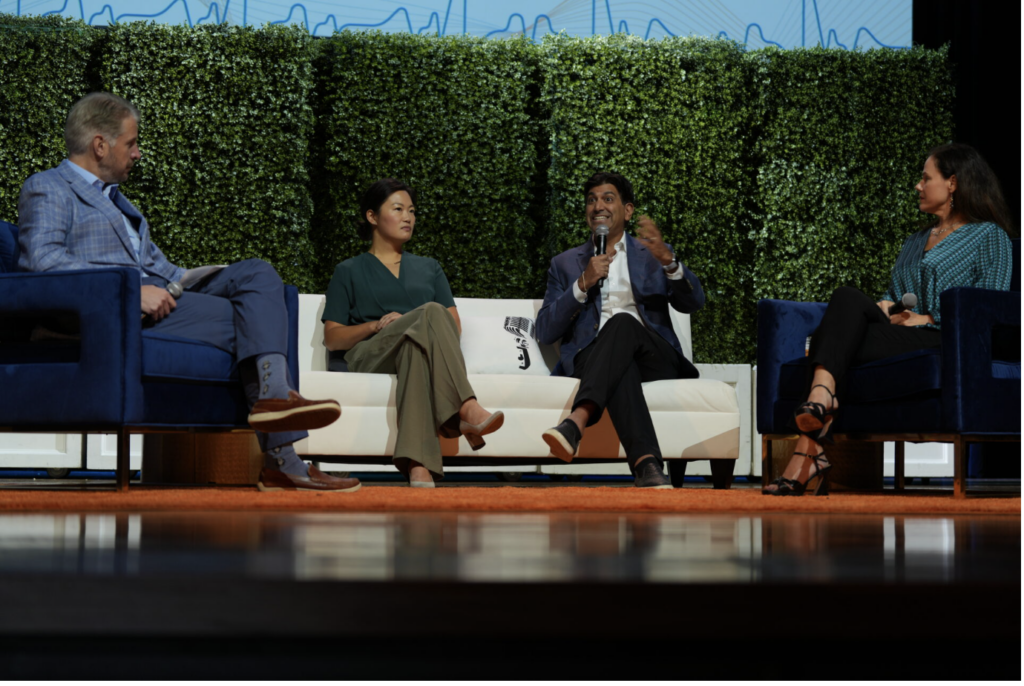2023 Nashville Healthcare Sessions Conference: Day One Recap
nhccsessions
on
February 20, 2024

Day Two of Nashville Healthcare Sessions picked right up where Day One left off, with many of the threads we highlighted on Day One continuing into the seven panels and fireside chats.
Adding to those topics – taking cost out of the system, advancing creative models of care, finding the right niche and use case for innovations, and taking the lead on AI – Day Two speakers added another layer: partnerships.
The clear consensus on Day Two was that the challenges facing healthcare will take a concerted collaborative effort to solve.
During the opening fireside chat on the state of healthcare, Rubicon Founders CEO Adam Boehler pointed to Nashville as an exemplar of this collaborative spirit. He pointed out that when a new company arrives in town, the Nashville healthcare community doesn’t look at it as one more competitor. Instead, it’s an opportunity for more expertise and collaboration.
The point was extended when Marc Watkins, Chief Medical Officer of Kroger Health, and Kevin Ban, Chief Medical Officer of Walgreens, talked about the number of COVID-19 tests and vaccines their organizations provided during the pandemic, due to their deep embeddedness in communities and in patients’ lives. The implication was that even where formal partnerships aren’t in place, provider organizations of all types recognize that treating the whole patient will require all of us to do our part.
Value-based care cannot function without robust partnerships, either. On Day One, we heard how point solutions won’t work anymore because they must be interoperable with other tools. Nowhere is this more evident than in the pursuit of value-based care. To improve outcomes, every aspect of the patient journey and experience must be considered and addressed. No one can do it alone.
Wyatt Decker, Executive Vice President, Chief Physician Value-Based Care, UnitedHealth Group, talked about the importance of partnering with communities and local agencies to first understand local needs and build trust. Only through those authentic relationships can providers bring their expertise, data and scale to bear on helping individual patients pursue health. Optum is partnering with Main Street and reaching community physicians who otherwise wouldn’t be introduced to value-based care.
Rob Allen, CEO of Intermountain Health, echoed this sentiment, adding that relationships and local partnerships are necessary to sustainably address social determinants of health – and by addressing social determinants, providers can build trust by showing they have the whole patient in mind.
David Dill, Chairman and CEO of Lifepoint Health, noted that a partnership between Lifepoint and Palantir – headed by his onstage partner, CEO Alex Karp – is helping frontline staff know more about individual patients to understand what they need. That nuanced insight opens doors to ever greater personalization in the care of each individual. “There’s a significant benefit to taking fragmented data and bringing it together. Ultimately, it’s about bringing world-class tech and partners to communities.”
Of course, patients and clinicians alike must trust that the data being used in care delivery is both collected and used in appropriate ways. This long-standing concern has been amplified by the rapid rise of generative artificial intelligence. Shivdev Rao, CEO and Co-Founder of Abridge noted that trust in AI comes from transparency, reliability and credibility. Aashima Gupta, Global Director of Healthcare Strategy and Solutions at Google Cloud brought this point home with a reminder that ultimately, trust is built through people and relationships. Tech and providers alike must keep people in the loop, bringing them along and communicating at each step so they understand what is happening, how it affects them and how they can be part of the journey.

